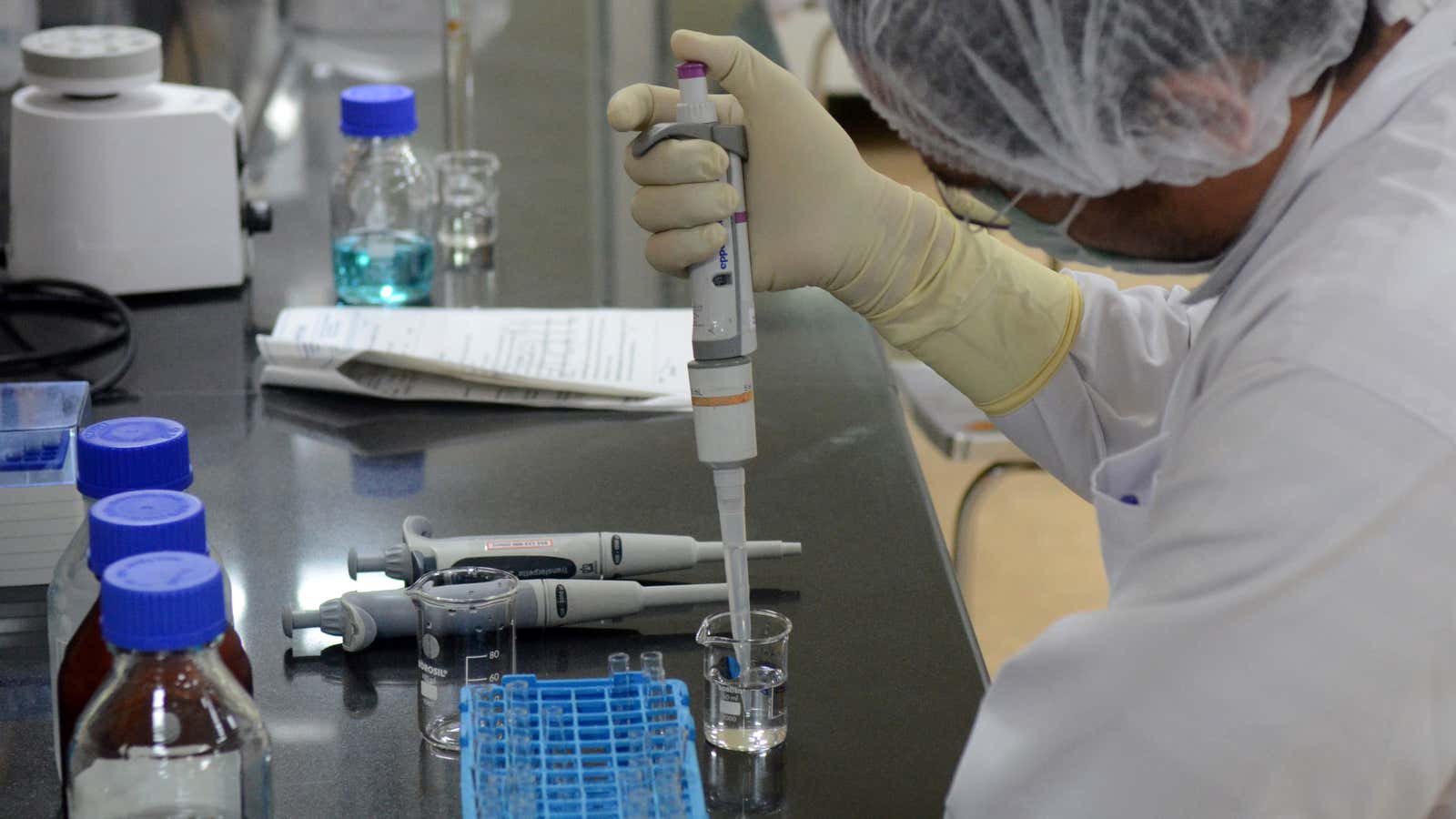World over, developments around the Covid-19 vaccine are being watched with great anticipation. In India, that anticipation is now three-fold.
Three vaccine candidates have applied for emergency use authorisation with the Drugs Controller General of India. These include the Pfizer-BioNtech vaccine, Covishield, which is developed by Oxford-AstraZeneca and manufactured by Serum Institute of India, and Covaxin, developed by India’s Bharat Biotech.
Vaccines, medicines, and medical devices go through various rounds of testing before getting final regulatory approvals in a country. During healthcare emergencies—such as the Covid-19 pandemic—this process is shortened and the criteria is made simpler so that a medical crisis can be contained.
If approved, any of these vaccines will first be used to inoculate healthcare and frontline workers, and the elderly over the age of 65. Once the vaccine is available, the Indian government plans to immunise up to 300 million citizens by August 2021.
Pfizer’s third phase of human trials concluded on Nov. 18, but the vaccine had no trial participants in India. The Indian drug controller, if they are satisfied with clinical trial results in other countries, has the power to waive the condition for a localised trial on the basis of Pfizer’s application on Dec. 6. The two-dose vaccine has sought and received similar clearances in the UK and Bahrain.
Should approval be granted, Pfizer’s biggest challenge in India would be the cold-storage infrastructure. The vaccine needs to be stored at -70 degrees celsius, a huge shift from most vaccines that need refrigeration between 2 and 8 degrees celsius.
Pfizer has said it would work with partners in various countries to iron out these challenges. On its part, the Mumbai airport is sprucing up its cold storage and transportation facility in anticipation of such ultra-cold storage vaccines hitting the market.
The second challenge for the Pfizer vaccine would be its cost. It has struck a deal with the European Union for about $18 per dose (Rs1,402), which is quite steep for a country like India with a large population of 1.3 billion and vast income inequality.
This is where the SII’s play in the Oxford vaccine could prove beneficial. Not only does Covishield not need ultra-cold storage, being manufactured in India gives the vaccine a definite price edge. SII’s CEO Adar Poonawalla has indicated that the vaccine could cost Rs1,000 for the two doses, and would be available in India for use by February 2021.
A volunteer of the Covishield phase 3 trial, though, has alleged adverse event to the vaccine. The participant claims that he has suffered serious neurological side-effects because of taking the trial shot. SII has denied this claim, and the Indian Council for Medical Research (ICMR) has said that the initial reports did not warrant stopping the trial. The ICMR is India’s nodal medical body and has partnered with SII to conduct clinical trials for Covishield in the country.
Covaxin, another vaccine backed by the ICMR and developed by Bharat Biotech, has also applied for an emergency use authorisation, hours after Poonawalla’s SII did for the Covishield vaccine on Dec. 7. This is the first indigenously developed vaccine in India to apply for such a clearance and is currently in the process of conducting the third phase of human trials in the country.
Several high-profile politicians took the dose in this third phase of the trial, including Haryana’s cabinet minister Anil Vij. He later tested positive for Covid-19, raising several questions about whether he received the second dose of the vaccine, and the very ethics of a double-blind vaccine trial.
